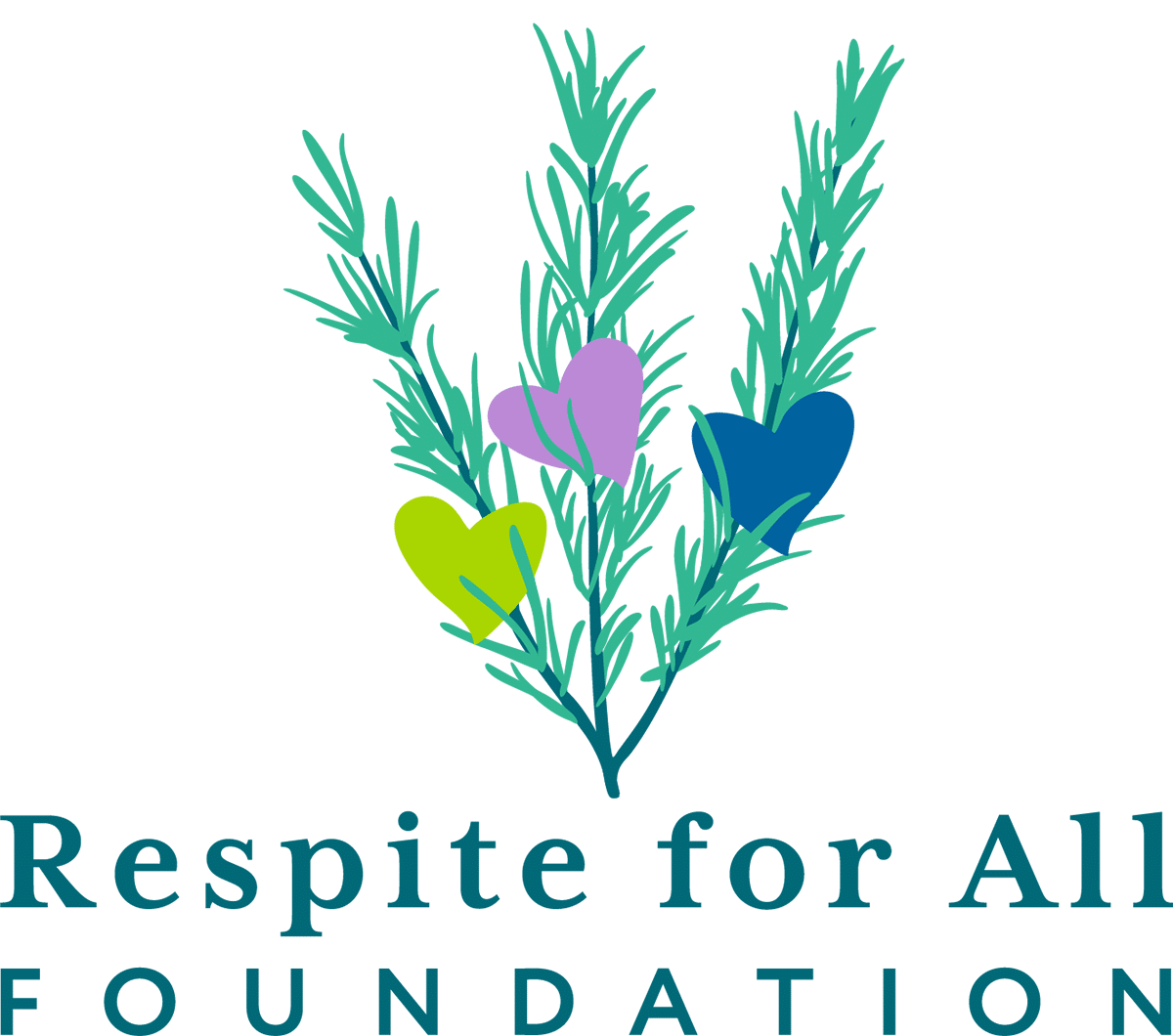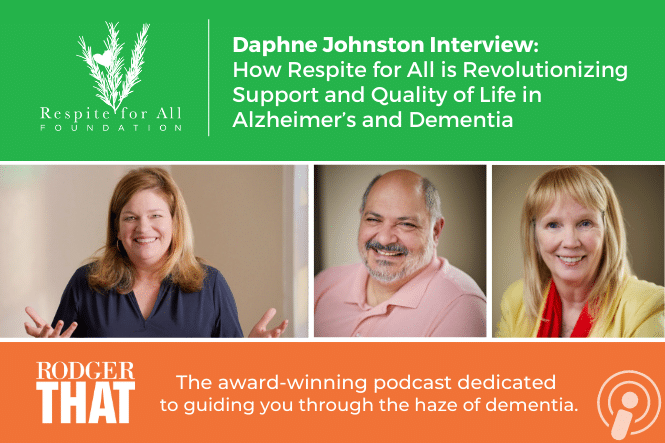[vc_row][vc_column][vc_column_text][sonaar_audioplayer albums=”4480″ artwork_id=”” player_layout=”skin_boxed_tracklist” hide_progressbar=”default” display_control_artwork=”false” hide_artwork=”false” show_playlist=”false” show_track_market=”false” show_album_market=”false” hide_timeline=”false”][/sonaar_audioplayer][/vc_column_text][vc_empty_space][vc_column_text]While respite care has been around for decades to help lift some of the daily obligations that caretakers face, all too often, it consists of filling time in a dependent adult’s schedule with empty activities.
With her background in gerontology and 15 years of practical experience as an executive director in senior living administration, Daphne Johnston was convinced that there had to be a better way — a way that would leverage the sense of community and commitment to others that was fundamental to most faith-based organizations. While preparing to launch a Respite Ministry at her own church, First United Methodist Church in Montgomery, Alabama, she visited several ministries across the southeastern United States that offered congregational dementia care. It was then that Daphne recognized the need to create a more stimulating atmosphere for those with cognitive issues so that they could still find meaning in their everyday lives.
That vision became the groundwork for the Respite for All Foundation — a non-profit Daphne co-founded to promote a faith-based model of volunteer care that is changing the culture of how we live among our friends living with dementia. From its humble beginnings — the original respite ministry started with two participants and 14 volunteers — the model began to spread rapidly and has now been implemented by 27 volunteer programs nationwide. Inspired by the model’s resounding success, Daphne authored Reclaiming Joy Together, a resource that is meant to serve as an inspiration and tool to help others successfully build a Respite Community. Taking her training one step further, Daphne also created a six-module video program entitled The Respite for All Roadmap™ that outlines the methods that led to that success — methods that can be duplicated by any faith-based organization, regardless of location or denomination.
As a recent guest on the Rodger That Show, Daphne spoke about her quest to create a more engaging, faith-based approach to respite care, along with the tangible, real-world successes that have resulted from that approach.
Daphne Will Touch on:
- Why faith-based organizations, through their commitment to volunteerism and service to others, are a natural fit to provide meaningful, enriching respite care.
- The importance of creating the right organizational structure in a respite care program and how low monetary resources can actually be a benefit.
- Why emphasizing service to others, instead of merely offering empty activities, gives those with cognitive issues a sense of purpose and contribution.
- The dramatic quality of life improvements that faith-based respite care can provide to overburdened family caregivers.
- How the Respite for All Roadmap™ video training course can lead the way for any faith-based organization to start its own respite care program and enhance their standing as a community resource, regardless of their denomination or location.
By 2050 it is estimated that there will be 15 million people in the U.S. living with dementia. It’s no secret that we need new systems of care to be implemented and researched today if we want to help improve the quality of life for the millions and millions of people projected to live with or be impacted by Alzheimer’s and related forms of dementia.
We have the opportunity to begin preparing now because we know a problem is coming. The answer is not the internet. It is not putting millions of people in facilities or locking them away because not everyone needs long-term care. And surprisingly enough, this solution isn’t even medically related. It’s social. It’s Respite — “a short period of relief from something difficult or unpleasant.” Yes, Respite for ALL. For the caregiver, the friend living with dementia, and the volunteer.
Big Three from this Interview:
- Daphne’s 15 years of experience as an executive director in senior living administration and background in gerontology provided her with a thorough, real-world perspective on elder care. So, when her church asked her — the First United Methodist Church (FUMC) — to develop a volunteer-based model to provide respite care support for families of those living with dementia, she hit the ground running, visiting a number of churches across the Southeast to see how they were approaching congregational-based respite care. In some cases, the churches were looking after those in need, but weren’t providing particularly enriching activities and instead filled their time by putting them in front of the television or providing hours upon hours of passive pursuits, like bingo. Daphne then came across three churches that provided much more vibrant and interactive congregational respite care. Their common denominator? None of these churches had a large paid staff and instead relied on just a single director and an army of volunteers to run their programs.
- Drawing upon what she learned during her research, Daphne began a faith-based respite care program at the FUMC. Her program got off the ground with twice weekly care that ran from 10 AM to 2 PM and has since expanded to four times a week during those same hours. Rather than filling hours with the empty activities she had seen at other programs, Daphne also made it a priority to emphasize art, music, hand coordination and competition. The addition of service projects made a huge difference in making the routine more fulfilling for their participants — when someone gets a diagnosis of Alzheimer’s, it can be a very isolating experience, and these projects provide a strong sense of purpose and community.
- Daphne’s objective now is to share what she has learned and put into practice with other faith-based organizations — regardless of their denomination or location. She has authored a book called Reclaiming Joy Together. She subsequently developed a six-module video program, the Respite for All Roadmap™, that will allow them to duplicate the methods that Daphne has built into the FUMC care program and offer respite care in their own locations. In doing so, they can provide an essential service and become vital community resources.
Time-stamped Show Notes:
0:00 Introduction
3:10 Meet Daphne Johnston, Co-Founder, and Executive Director of the Respite for All Foundation.
4:20 This is where Daphne’s quest to create a better approach to respite care got started.
5:17 Three churches across the Southeast offered something called congregational care respite. Daphne found that because their programs didn’t have a large paid staff, what they had to offer was so vibrant and different.
6:32 The addition of service projects within the respite care curriculum gives participants a greater sense of purpose and helps them reclaim their place in the community.
7:39 Daphne shares more insights on the types of service projects Respite for All participants get involved with, which include everything from snack bags for a local cancer center to flood kits for a hurricane that hit the Gulf Coast.
10:03 It’s not always easy getting participants to attend respite care but reframing the conversation to share how the participant will still be giving back and helping others is critical.
10:48 Tune in here for the vital message Daphne’s program imparts to those recently diagnosed with Alzheimer’s.
11:54 Daphne shares a participant story highlighting how important it is to make people feel like they still belong.
12:56 The life of a caregiver can be incredibly difficult. How do you take care of a loved one and still go to a doctor’s appointment, shower, or even just sit silently for a moment? The answer is respite.
13:33 Next, Daphne shares a signature story highlighting how respite isn’t just a break for the caregiver. It’s a break for the person living with dementia too.
16:16 Expanding the thought behind the program is the genesis for Daphne’s quest to share the faith-based volunteer model via her video training program, The Respite for All Roadmap ™ — $650 for the video course can train the whole community!
18:18 Here’s an example of how effectively this respite care model can transcend denomination and location.
21:43 Churches have several value-based priorities that make them a good fit for volunteer-based respite care, but here are some logistical advantages they have as well. Hint: it’s the space that no one is using!
22:15 Listen in now as Daphne shares more about the Respite for All Conference every February – a resource that helps grow and maintain respite communities.
Want to Request Daphne for a Radio or Television Appearance, Presentation, or TedTalk? You can get in touch by sending an email to [email protected] or calling 334-440-9911.
Resources/Links Mentioned in this Episode:
- Want to learn more about starting a respite program in your community? Visit our Start Respite page now!
- To purchase the Respite for All Roadmap™, go to https://respiteforall.mykajabi.com/respite-for-all-roadmap.
- Purchase Daphne’s book, Reclaiming Joy Together now on Amazon!
[/vc_column_text][/vc_column][/vc_row]

